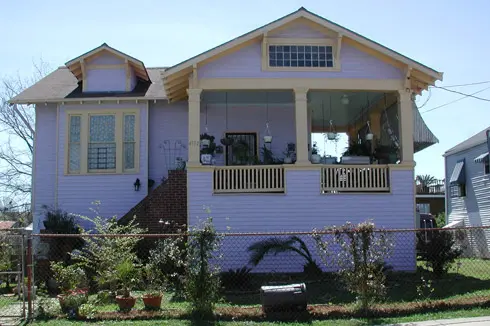- Fixed-rate FHA mortgages have looser lending standards than non-conforming loans.
- The interest rate cap structure in variable rate loans provides some protection from large interest rate swings
Because Rates on FHA Loans Are Set by Each Lender, it Pays to Shop for the Best Rate.
In 2010, more than 19 percent of all residential mortgages, and more than 30 percent of all home purchases, were made with FHA loans. The FHA offers two kinds of mortgage rates: fixed and adjustable. These rates are offered by mortgage lenders who sell FHA mortgages. The FHA itself sets the standards, but not does not sell loans. When comparing FHA-conformant vs. non-conformant loans, there should be little variation in rates, but you may see substantial differences in fees and closing costs. If you apply for an FHA mortgage, request rates and fees from FHA lenders to compare the total costs.
Fixed FHA Mortgage Rate
The FHA fixed mortgage rate is set by the Federal Reserve Board, which also sets the short-term interest rate. The rates will show some movement from week-to-week, depending on the performance of mortgage-backed securities sold by Fannie Mae and Freddie Mac. Rates for conventional loans below the FHA conforming limit are often competitive with the FHA rate.
The FHA requires a mortgage insurance premium (MIP) for its loans. You may find that a conventional loan is a better deal because you avoid the 1.5% mortgage insurance fee the FHA charges at closing, plus 1.1% or 1.15 % of the loan as a monthly fee. The FHA requires that all borrowers of loans it insures pay MIP. The MIP insurance rate for FHA variable-rate loans is 0.25% or 0.50% per month for 15-year or shorter-term loans. Consumers with non-FHA loans who put down less than 20 percent are typically required by their lenders to take out private mortgage insurance (PMI). Whether you pay PMI or MIP, both protect the lender in case the borrower defaults on his or her mortgage payments, and not the borrower. See the Bills.com resource FHA Mortgage Insurance to learn more.
Fixed-rate FHA mortgages have looser lending standards and lower down payment requirements than commercially insured, non-FHA-conforming loans, which makes it easier to qualify for FHA loans.
Adjustable FHA Mortgage Rates
FHA adjustable rate mortgages adjust annually. The rate is determined by one of two indexes:
- The Constant Maturity Treasury (CMT) index (weekly average yield of U.S. Treasury securities, adjusted to a constant maturity of one year); or
- The 1-year London Interbank Offered Rate (LIBOR)
Increases or decreases in the interest rate will be limited by the interest rate cap structure of your loan.
The interest rate cap structure provides some protection from large interest rate swings. There are two types of caps: (1) annual, and (2) life-of-the-loan. The annual cap restricts the amount your interest rate can change, up or down, in any given year, while the life-of-the-loan cap limits the maximum (and minimum) interest rate you can pay for as long as you have the mortgage.
Low FHA rates make it possible for more home buyers to become homeowners. If you are in the market for a first home and your price range is within the FHA loan limit, then you should compare FHA loan rates with those of other mortgages before choosing your loan.
